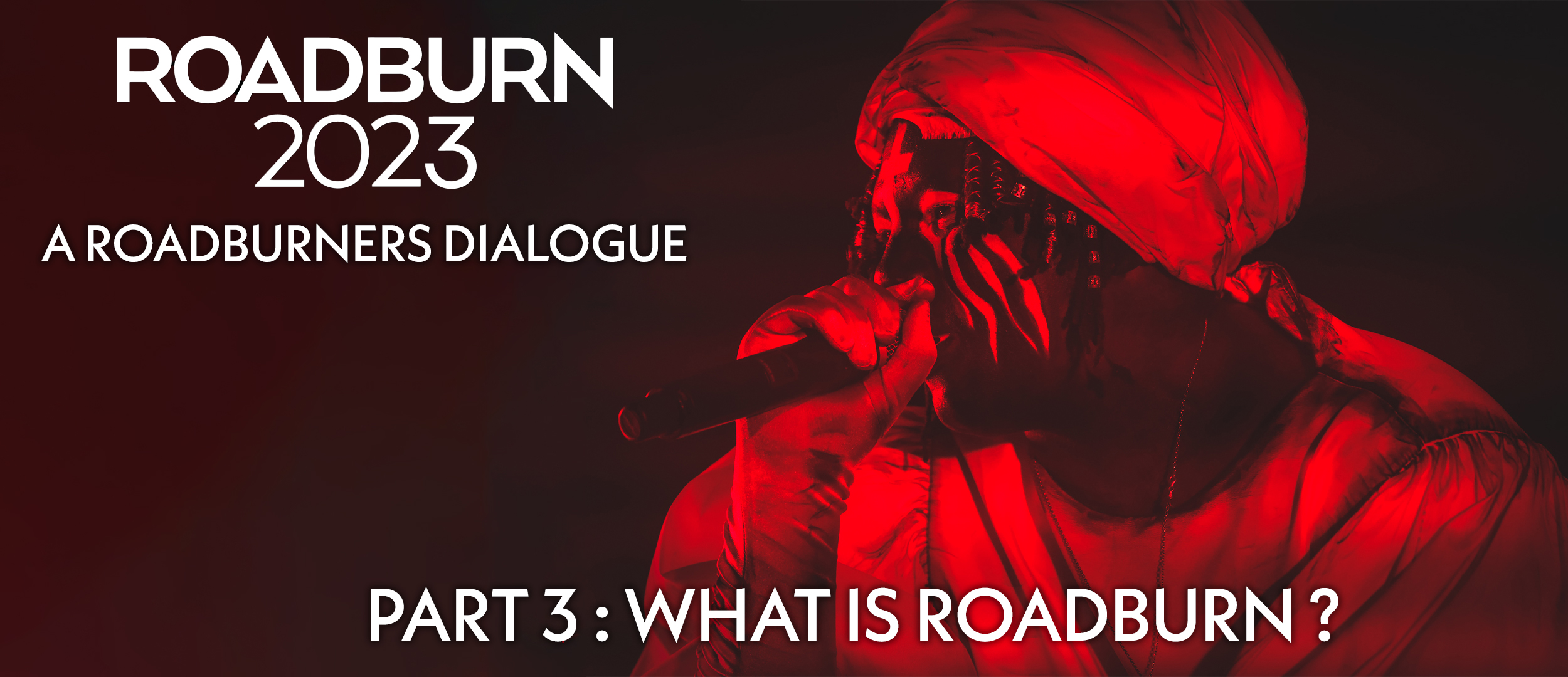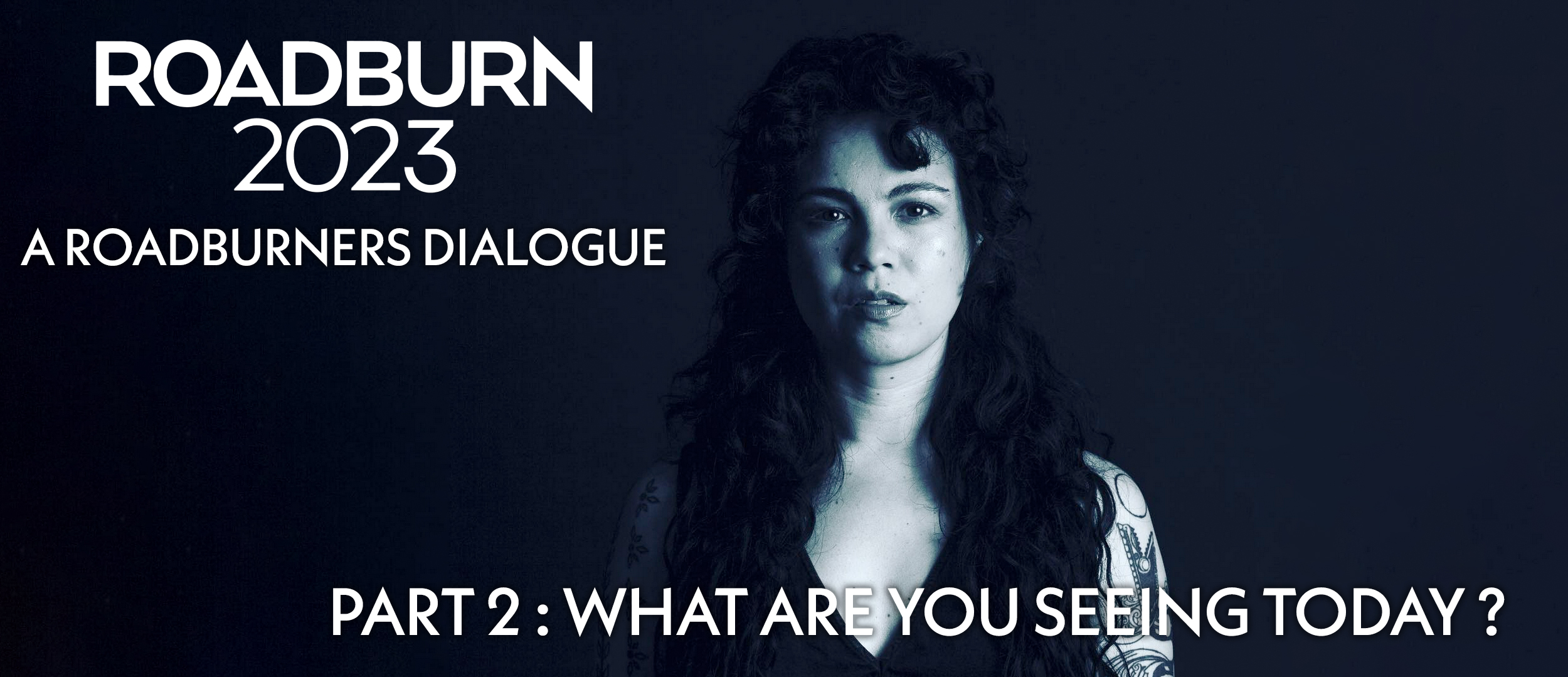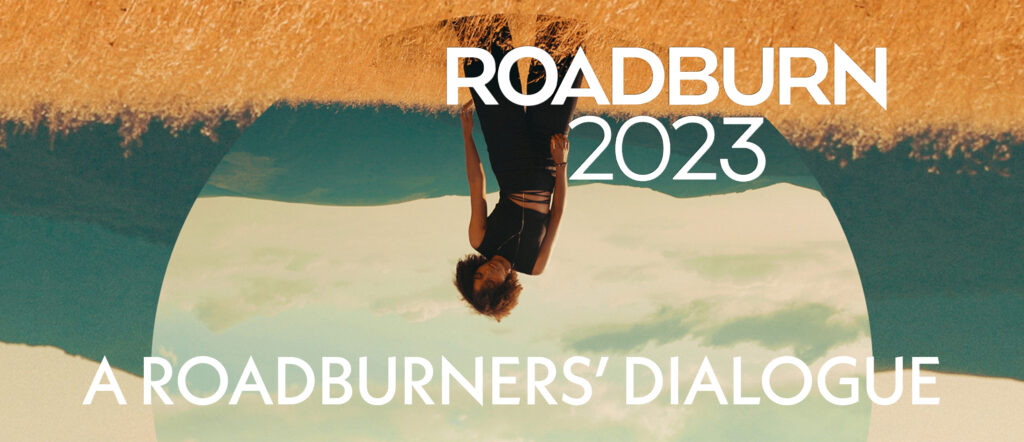
I know what it sounds like when Roadburn people talk about the fest with the rest of the world. The ecstatic superlatives, the Facebook posts about minds blown and lives changed. The wide-eyed tales of this or that gig, usually told over beers and usually met with a « Sounds good. », or the lists of one’s favourite concerts that inevitably end with two or three that took place there. And the people! Oh, the people there, they are so lovely.
It sounds culty. It sounds like your friend who went to a wellness retreat and returned to tell you about this guy they met under an olive tree, who told them how to escape the reality cages we lock ourselves in. They seem happy, so you think « Good for them. », but… Aren’t they a bit too deep into that stuff? It’s a festival, for Christ’s sake, you’re not going to reach nirvana there.
It can be annoying, I know – I went on the usual, massive Instagram rampage about this year’s edition, and a friend told me « You sure are posting a lot, uh? », unamused. They’re not wrong. I also labelled my posts « Transmission # from… », which is extra cheesy and also fairly UFO convention-like.
So, in an attempt to wrap our heads around what makes Roadburn stand out in a way that – hopefully – will speak to outsiders, we put on paper a number of discussions we had, both on location and after going back home from the 2023 edition. We are but two random Roadburn-goers, only giving our perspective on why people get so emotionally invested in that four days stretch of angry Dutch non-spring. Why they’ll talk your ears off with word salads about « Afrofuturist electro-grind » or undescribable collabs between Finnish Psych-Black and Psych-Doom totems. Why they go and then come back, year after year, crossing great distances and courting financial ruin.
Beyond the buzzwords and the platitudes, Alex: what led you to Tilburg for the first time, and what did you find there that made you say « See you next year » on that Sunday night in 2022?
Alex: Well, one obvious answer to ‘why I went’ is the absolutely fucking stellar lineup (by my taste), but it’s not just that. A lot of festivals just have a unidirectional online presence : Facebook page and/or event for posting top-down updates from the fest PR, an Instagram account in some cases. Once I got interested in Roadburn, I joined the Facebook group and their Discord server, and I immediately felt something special was going on there : running jokes flying around, people posting music / food / beer / bar reccs, people going to other gigs all year long and finding other Roadburners to tag along. I saw that Roadburners are a cohesive community of people who share common appetites around music, but can develop other kinds of bonds.
My family life only allows for one “long” event like this a year, and this palpable sense of community convinced me that this would be the right choice. I didn’t simply think to myself “I want to go there”, but rather “I want to be a part of this”.
As for why I was convinced I would come back next year… Do you remember how we first met ?
Elia: I do! It was actually a direct demonstration of what you just described: one person reaches out on the fest’s socials, another one responds, and suddenly they’re friends. Socializing is as simple as that at Roadburn, and it’s a demonstrable result of the existence of a real community around the festival. More importantly, it shows how the organizers rendered the ground fertile for such a society to sprout – through the Discord, the Roadburners group, the gatherings for solo or first time attendees, they provided the tools by which such connections are made possible, safe, durable.
This is crucial for several reasons. First of all, I think this must be the festival with the highest concentration of lone venturers. Two elements lie at the roots of this fact: the somewhat esoteric musical offer, and the undeniable expensiveness of the event. I’ll bet not a lot of people have a deep rolodex of friends who both appreciate this wide a spectrum of unconventional sonic pleasures, and have the means or the will to invest the capital, the time and the effort it takes to attend.
Alex: On the money side, I can confirm. I’ve resolved to get my nutrients by licking the minerals off my wallpapers at home for the next month. You don’t have to believe financial responsibility is a myth to take the first step to Roadburn but it helps 😀
Elia: Because of this, I’m sure a lot of people went through the process of finally saying “Fuck it, I’ll go for it alone” and, at a certain point, the festival started taking notice, and started building the conditions that allow these people to be alone in Tilburg, but not lonely.
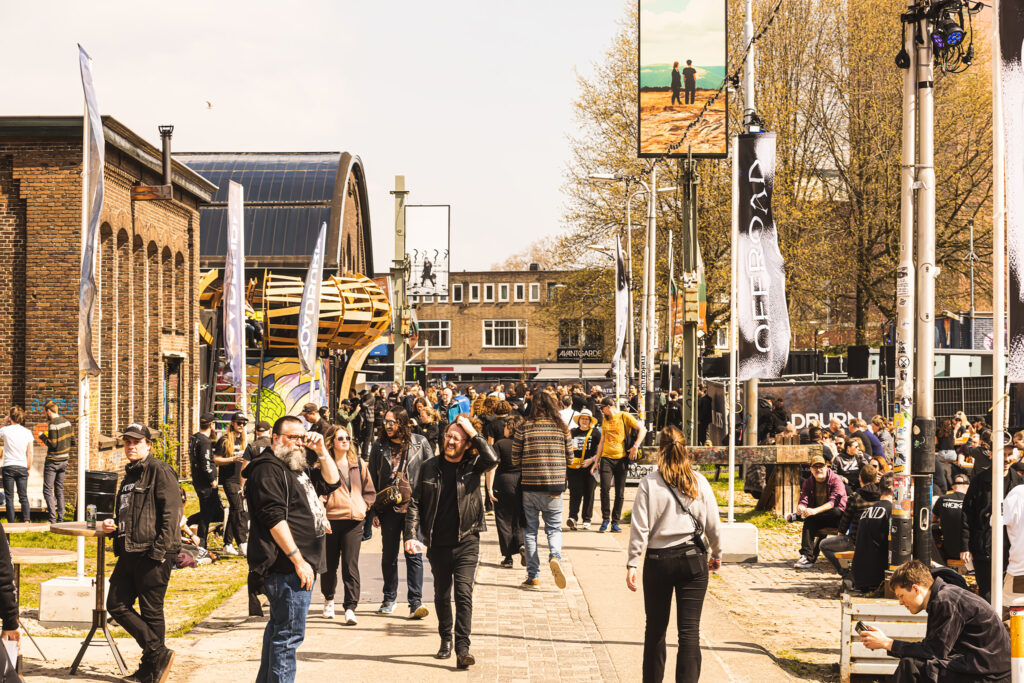
A : Yep ; I would add neither lonely nor overwhelmed. It’s easy to go alone, because it’s easy to make friends on the spot, but also because it’s easy to manage or reclaim your own private mental and physical space. I can struggle with “peer pressure” in social situations ; at Roadburn I never felt that kind of pressure to stick around with a given group of friends throughout the day. Anyone can tag along for a gig, then go separate ways to catch another act elsewhere, then catch up again at another time, and so on. It’s Roadburn : we know that we’ll bump into one another at some point.
Conversely, one can openly say that their social batteries are exhausted and they need alone time to breathe, and everyone will get it and be cool with it. This is especially impressive in a 5000-ish-person gathering : people genuinely listen and give space to each other.
E : That’s exactly it. I travel a lot for festivals, but I haven’t seen quite the same dynamic anywhere else and, I must say, its value cannot be overstated. My first Roadburn was in 2016, and over the years I’ve clearly seen the crowd get more and more diverse, in the most beautiful way. And, this needs to be underlined, it was a completely organic process. See, the festival didn’t run big ad campaigns, or promote performative “insert demographic empowerment” initiatives. They saw that diversity is the beating pulse of this scene, and chose not to ignore that.
The underground raised a mirror to its dwellers, it saw what it saw and projected it onto the screen. The people noticed a light entering the cave from up north, and they followed it. Roadburn is the house they built together. This is what is meant when the word “community” is used: finding the outsiders and giving them the means to connect.
A : Right on. I felt this last point has a big effect on the audience and artists alike. I mean, there are some big names like Deafheaven or Wolves in the Throne Room, and even a couple of what I qualify as “Coachella-grade acts” like Zola Jesus or Boy Harsher – which is an excellent thing btw, both were incredibly good – but for the vast majority of bands playing there, Roadburn offers a platform to play in front of big audiences that are usually just scattered all around the globe. Hell, last year Litvrgy played two full sets on the Mainstage. That’s about what, between 2000 and 3000 people ? I saw them again a few months later in a punk house on the outskirts of Paris, we were something like 50 people in front of them – I’m not making that up.
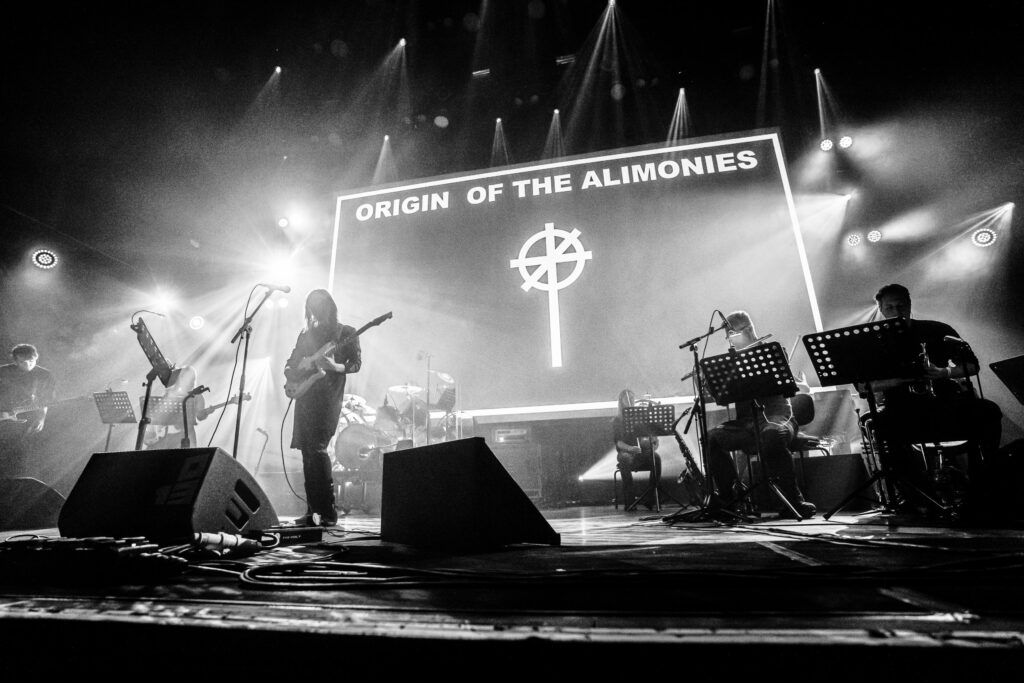
Of course I’m taking an extreme example here – and Litvrgy play other big shows outside Roadburn – but I do think Roadburn amplifies the possibilities tenfold for many acts, by gathering a large crowd that just cannot be united anywhere else for the rest of the year.
E : Litvrgy is actually a terrific example of the kind of things that happen at the festival. My perspective might be skewed, but I remember the days of Aesthetica and The Ark Work. In certain circles, the band was treated as some kind of joke, mostly due to the collective inability to see beyond Haela Hunt-Hendrix’s admittedly pindaric interviews. Years later, I feel that the scene has caught up with them, perhaps in part due to festivals like Roadburn helping develop a widespread understanding that Metal can be more than chonky riffs and eeeevil words. I’m oversimplifying here, of course (Metal was never just that), but there’s something of a feedback loop happening: Roadburn took a lot from the ethos of bands like Litvrgy, and in turn it created the grandest podium for them to use.
And so, there they were. Do you remember how absolutely RIPPING they sounded? Holy shit. A weird, unique vision, set to devastating Black Metal, on a giant stage, supported by the kind of elaborate visuals that only big bands are supposed to have. All in front of a crowd that was all-in for the madness. It was triumphant !
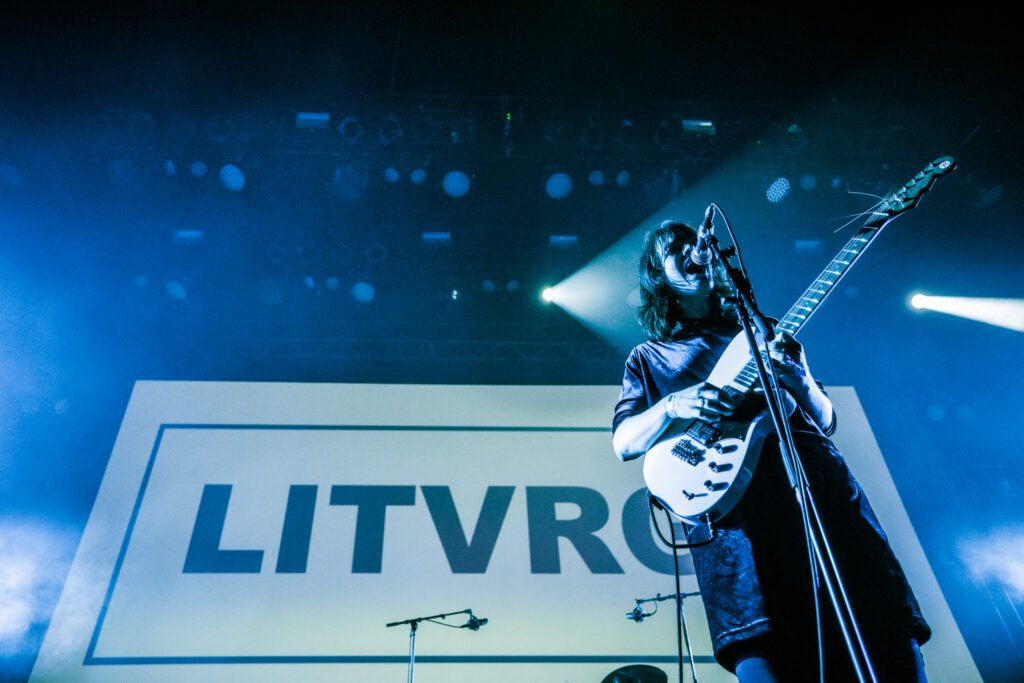
A: I do remember ; Haela Hunt-Hendrix’s howl hit me like a burning spear on that day. I remember literally thinking « how can they play like this for more than 10 minutes and stay alive ? »
And now, just after seeing them for the third time, I still felt transcended as ever by their art. A common criticism about Litvrgy is how their music is supposedly too intellectual and hard to get into ; when beholden on a stage, they instantly prove it wrong. Becky Laverty herself recently had a very good take on how their intricate technicality is not an obstacle but a catalyst to losing yourself into the ionizing vortex (go read her Substack post about that). And she has given the opportunity to several thousands of people to realize that in Tilburg.
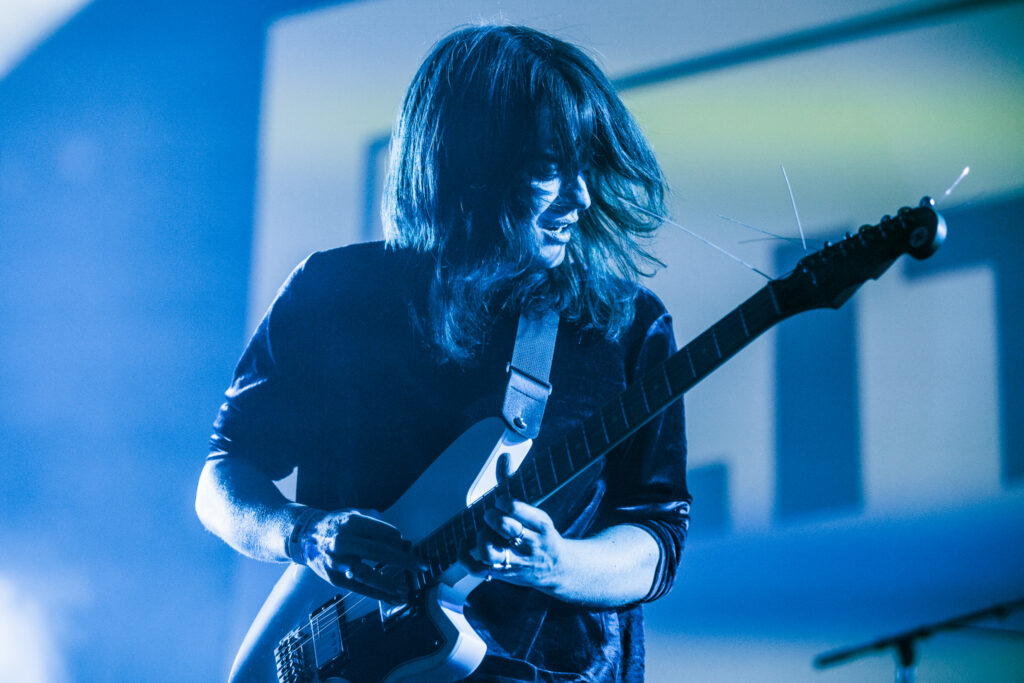
E: All of this creates an ecosystem in which new ideas are not only welcomed, but actively cultivated, to the overall benefit of the entire extreme scene. The fest never shied away from turning a big spotlight on the more niche corners of Metal, thus allowing these far-out approaches to reach a wider audience and, inevitably, pollinate the scene. See how many Metal festivals are now incorporating bits of the Roadburn ethos, opening up their bills to a wider spectrums of sounds and concepts.
This is the biggest service that Walter and the team have rendered to Heavy Metal. Make no mistake: this has provided our music the tools to thrive for another century.
Read more :
